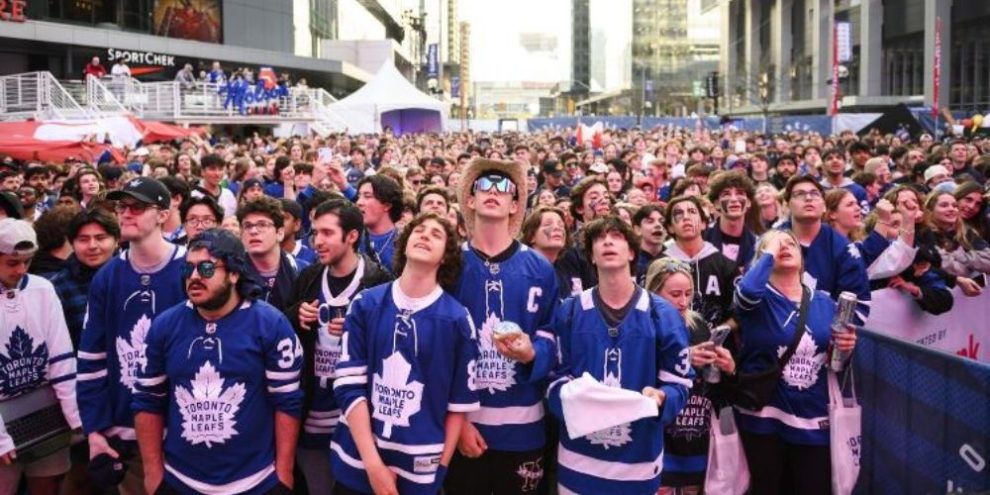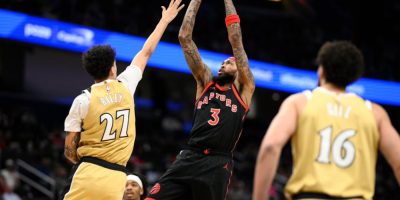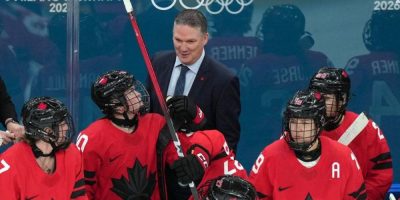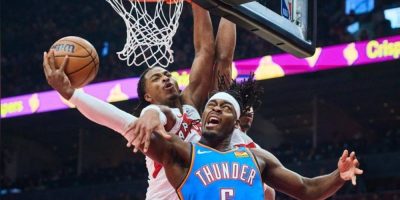
Rogers Communications Inc.'s landmark deal to acquire rival telecom BCE Inc.'s share of Maple Leaf Sports & Entertainment could lead to better — but pricier — fan experiences, says one sports business expert.
The $4.7-billion deal announced Wednesday will give Rogers a 75 per cent stake in the sports conglomerate that owns the NHL's Maple Leafs, NBA's Raptors, CFL's Argonauts, MLS' Toronto FC and AHL's Marlies. The deal is expected to close in mid-2025.
Rogers and BCE, the parent company of Bell Canada, each currently have a 37.5 per cent stake in MLSE, one-fifth of which is also owned by MLSE chairman Larry Tanenbaum through his holding company Kilmer Sports Inc.
For Rogers, which also owns the MLB's Toronto Blue Jays, it's all about consolidating its dominance in Toronto's professional sports market, said Brock University sport management professor Michael Naraine.
"Fundamentally, it comes down to economies of scale," he said.
"Once Rogers eventually owns ... the majority stake, you're going to start to see the ability to cross-sell: Buy season tickets to the Jays and the Argos. Buy season tickets to the Leafs and the Blue Jays. Buy a sponsorship for the Jays and the Raptors."
Bell said it would remain the official telecom sponsor of the Toronto Raptors and maintain its sponsorships of the Toronto Argonauts and Toronto FC.
It also said that through negotiations, it secured the ability to renew Bell Media's content rights to half of all regional Toronto Maple Leafs games and half of Toronto Raptors games, which would continue to air on TSN for the next 20 years.
Scotiabank analyst Maher Yaghi called it a win for both sides, with BCE having long indicated it would be a willing seller of MLSE "as long as a transaction would not jeopardize its content sourcing for sports."
Barrie's News Delivered To Your Inbox
By submitting this form, you are consenting to receive marketing emails from: Central Ontario Broadcasting, 431 Huronia Rd, Barrie, Ontario, CA, https://www.cobroadcasting.com. You can revoke your consent to receive emails at any time by using the SafeUnsubscribe® link, found at the bottom of every email. Emails are serviced by Constant Contact
For Rogers, it opens the door to "potentially bring every major Toronto sports franchise under one umbrella," especially because the MLSE ownership agreement reportedly allows the telecoms to buy out Tanenbaum by July 2026.
"Down the road, we don’t see why the Jays couldn’t be integrated within the MLSE roster and the organization could then be IPOed at an even higher valuation than today’s valuation metrics," said Yaghi in a note, referring to the possibility of MLSE becoming publicly traded.
A Rogers monopoly over Toronto's men's pro sports franchises could lead to an altered fan experience at the arena, said Naraine.
He noted Rogers has proven it is committed to improvements for Blue Jays fans in that regard through the recent $400-million renovations to Rogers Centre and may wish to replicate that through a facelift to Scotiabank Arena down the line.
"But the negatives are 100 per cent you're going to see with those shifts that ticket prices are going to go up, you're going to see more sponsorship agreements ... because there's going to be this push to sell those assets for the value that you can get for them," said Naraine.
While there may be more cross-marketing involving the sports clubs, Concordia University sports economist Moshe Lander downplayed any risk of higher prices for tickets, concessions or memorabilia.
He said that would imply Bell has been a "moderating influence on the way that fans were being treated, which is giving Bell way too much credit."
"There shouldn't be a change. Pricing is not based on who owns the team. It's based on what fans are willing to pay and that hasn't changed," said Lander.
But he cautioned fans shouldn't expect consolidated ownership to lead to improved results on the ice, court or field. That's despite Rogers professing its commitment on Wednesday to "investing to bring more championships" to Canada.
"Does Rogers want a Stanley Cup as much as the fans? I don't think that's necessarily the case," Lander said.
"Ownership is usually not the reason for success or failure. It's putting the right people in charge, and is that their objective when they can maximize their profits by repeated first-round flameouts? I don't know that Rogers is necessarily going to even change that business model."
This report by The Canadian Press was first published Sept. 18, 2024.





